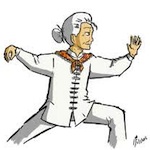Although my primary focus in medicine is orthomolecular with a functional approach to clinical practice, all of my clients are recommended to support their health with primary simple lifestyle interventions. These recommendations will range from specific dietary guidelines to simple physical activities centred around diaphragmatic breathing techniques.
Breathing exercises are one of the most powerful things that people can do to support their health. These exercises are easy to learn and highly effective for treating chronic or acute stress, heart problems, including high blood pressure, digestive issues, immune system deficiencies and mental health concerns, such as anxiety, depression and chronic pain.
One of the areas that I touch on with all of my clients is the idea of mindfulness. Mindfulness is nothing new age or weird, but simply the practice of being aware of ones body. This is not to say that you always want to listen to you body, like I touched on in a previous post, but simply be in tune with the automatic processes that keep us ticking.
One of the most simple tools I use in the office to show people this, is an oximeter. This device measures peoples pulse (heart rate) and the saturation of oxygen in their blood. When clients have the oximeter on their finger, it provides an immediate awareness of ones body as you can see your heart beating and how air is moving in and out of you. The most fascinating finding I have discovered recently is that our sitting position can completely over power our physical state. Sitting forward, or slouching, puts a massive amount of stress on our lungs and heart, while sitting with a straight back or leaning back produces the opposite effect.
The following review, published in The Journal of the American Geriatrics Society outlines the power that Thai Chi can have on cognition. Practicing Thai Chi is amazing and can produce a wealth of benefits around physical pain, stress and attention, amongst other health perks. Consider trying some deep breathing practice or giving Thai Chi a try this spring!
J Am Geriatr Soc. 2014 Jan 2. doi: 10.1111/jgs.12611. Effect of Tai Chi on Cognitive Performance in Older Adults: Systematic Review and Meta-Analysis. Wayne PM1, Walsh JN, Taylor-Piliae RE, Wells RE, Papp KV, Donovan NJ, Yeh GY.
OBJECTIVES: To summarize and critically evaluate research on the effects of Tai Chi on cognitive issues in older adults. DESIGN: Systematic review with meta-analysis. SETTING: Community and residential care. PARTICIPANTS: Individuals aged 60 and older (with the exception of one study) with and without cognitive impairment. MEASUREMENTS: Cognitive ability using a variety of neuropsychological testing. RESULTS: Twenty eligible studies with a total of 2,553 participants were identified that met inclusion criteria for the systematic review; 11 of the 20 eligible studies were randomized controlled trials (RCTs), one was a prospective nonrandomized controlled study, four were prospective noncontrolled observational studies, and four were cross-sectional studies. Overall quality of RCTs was modest, with three of 11 trials categorized as high risk of bias. Meta-analyses of outcomes related to executive function in RCTs of cognitively healthy adults indicated a large effect size when Tai Chi participants were compared with nonintervention controls (Hedges` g = 0.90; P = .04) and a moderate effect size when compared with exercise controls (Hedges` g = 0.51; P = .003). Meta-analyses of outcomes related to global cognitive function in RCTs of cognitively impaired adults, ranging from mild cognitive impairment to dementia, showed smaller but statistically significant effects when Tai Chi was compared with nonintervention controls (Hedges` g = 0.35; P = .004) and other active interventions (Hedges` g = 0.30; P = .002). Findings from nonrandomized studies add further evidence that Tai Chi may positively affect these and other domains of cognitive function. CONCLUSION: Tai Chi shows potential to enhance cognitive function in older adults, particularly in the realm of executive functioning and in individuals without significant impairment. Larger and methodologically sound trials with longer follow-up periods are needed before more-definitive conclusions can be drawn.
